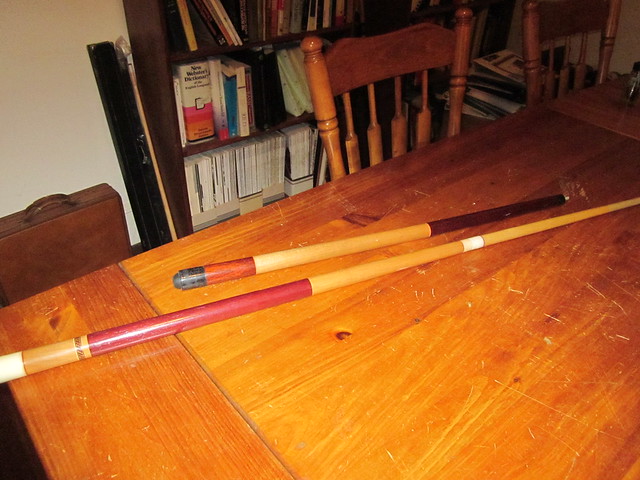Good morning! A customer was in my shop on Saturday, I was busy on the scroll saw, never been in my shop before, looked around at the equipment & tools in the shop, took a deep breath, & asked me if I could make him a custom made pool stick? I looked at him for a little bit, more in shock than in thought, & told him I, I, yes Sir, I think we can accommodate that. He looked at me, grinned, & said thanks Cuz, see ya at Mom's funeral on Monday. I just shook my head! No way! We don't see much of our family from the south, & it had been awhile since I'd seen him, but I sure didn't recognize him! Now, my question is, I've got some pretty good quality rough sawn maple on hand, what, if any, other equipment, or pointers do you more experienced fellas think I need for this project? My lathe is a hf 12" x 37". I don't have much of a budget to go out & buy anything fancy, just so ya know. I realize this project is going to be a challenge, & its not a matter of I can't, its just a matter of honing my skills enough to do the work. Thanks for your suggestions.





 Reply With Quote
Reply With Quote



 As others have said, making a decent pool cue is an art -- high art. No way I'd recommend trying to do it as a first-time one-off, especially with the equipment you have.
As others have said, making a decent pool cue is an art -- high art. No way I'd recommend trying to do it as a first-time one-off, especially with the equipment you have. 


 Laugh at least once daily, even if at yourself!
Laugh at least once daily, even if at yourself!